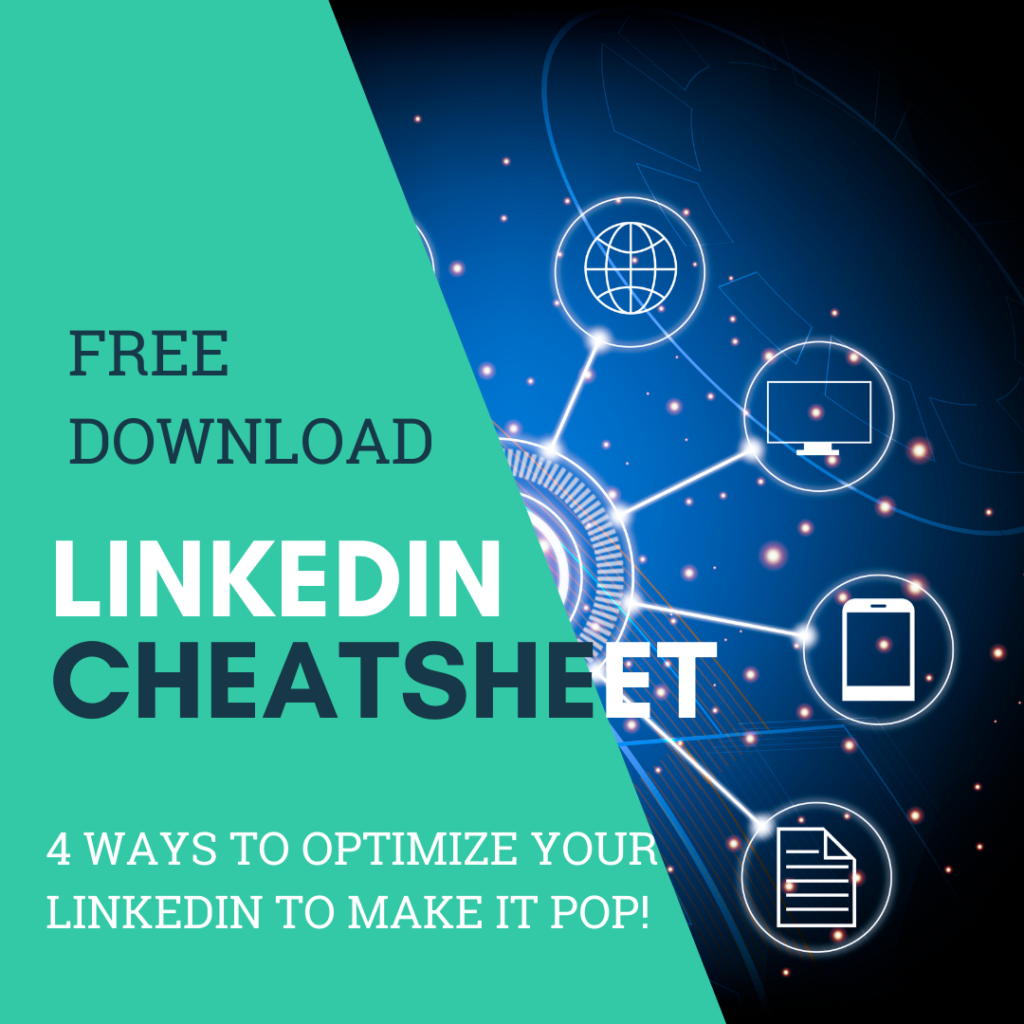What is up with Juneteenth?
Juneteenth is not a Black holiday. We don’t have any holidays in the U.S. based on race actually, and that’s maybe a thing we can be proud of/let out a sigh of relief about. What we do have are holidays related to a shared national past.
In this post:
July 4th: A Celebration of Change
Federal Holidays in the United States
Celebrating History vs. Celebrating Consumerism
Reflecting on National Scars (Trauma Holidays)
The Purpose of Juneteenth
Juneteenth is an American holiday with historical significance for Foundational Black Americans, just as Columbus Day is an American holiday with historical significance for Indigenous Americans. And I hope you aren’t wishing the Indigenous Americans in your life a “Happy Columbus Day”. And hopefully you are using that PTO time to learn something about the history of Indigenous American people, and continue to support their needs in the ways that you can.
But on June 19th, 2024 when I walked into Trader Joe’s at 11:00 a.m. I was overcome and assaulted by the number of people who used this day of national reflection (Juneteenth) to stock up on our seasonal cookies and really good non-dairy creamers. If it’s not shopping, Americans don’t know what to do with a holiday. And saying “Happy Juneteenth” has always felt. . . a bit off to me. I present my case:
The Issue
America is a country that is unreconciled to itself because it refuses to acknowledge anything in the past that it is too ashamed to say out loud.
America is a country that is unreconciled to itself because it refuses to acknowledge anything in the past that it is too ashamed to say out loud. As a country, we are decidedly averse to addressing guilt, shame and trauma. Are we doing anything to progress ourselves forward? Are we actually learning from our history, or are we just using these days as an excuse to have a barbecue?
Juneteenth is no July 4th.
It’s not a collective agreement to celebrate and consume. But my goodness could we at least acknowledge something terrible that happened as a country, together? Could we take steps in service of the ethnic groups whose lives were impacted by that date and the events leading to it? Could we attempt to spread, not just the dream of liberation, but the embodiment of it, just a little bit further?
How do you celebrate independence? Do you associate freedom personally? Nationally? or by some other measure?
What do you do to commemorate acts of liberation?
What does it mean to acknowledge that there are persistent barriers to freedom for different people, at different times and for different reasons?
Intrinsic to celebrating freedom is also acknowledging captivity, the past power structures, and the progress achieved in their overturn, or attempted overturn as the case may be.
If July 4 is about celebrating overthrowing our British oppressors, then Juneteenth is about celebrating overthrowing our American ones right?
How is that going, America?
Ethnic Observances in the U.S.
There is a specificity to how America celebrates. Despite being a country of 100s of different ethnic groups and heritages, the only mass produced ethnic holiday that America really gets into is St. Patrick’s Day, and that is largely fueled by a collective national addiction to sugar in the form of excessive alcohol abuse and general debauchery. St. Pat’s is not a federal holiday, but somehow, no matter who you are, you can wear green and pinch your friends who don’t. And you will definitely be able to find corned beef brisket and a savoy cabbage at the grocery store.
But Juneteenth, in addition to being American, is also a celebration for a specific ethnic group. And no, Black is not an ethnic group. Black is a race (made up). Ethnicity has to do with common cultural background and descent. There are people in this country who can trace their family lineage back to the enslaved people in Galveston or other parts of the United States at that time. Americans who can trace their lineage in this way, as descendents of the enslaved who would come to build the New World, are considered Foundational Black Americans (FBA).
Race, Ethnicity, and Nationality are not the Same
I am Black (race). My ethnicity is Caribbean; Jamaican and Bahamian to be exact. I can trace my family line for at least the last 7 generations on each side, and all of those people were born in the Bahamas or Jamaica. Not the United States. My ancestors were never enslaved here, were never on plantations. Yes, I am Black. Yes, I am an American (nationality). No, my family and ancestors did not build this country. I am not a FBA. So when people wish me a Happy Juneteenth, I am immediately wondering about the context of their salutation.
Are you wishing me well as a fellow American taking notice of our complicated history? Or
Are you wishing me well because I present as Black, and you, in your limited knowledge of history and distinctions of race and ethnicity, think that somehow, you should say that to Black people? Follow up: What caused you to think that?
July 4th: a Celebration of Change
In the United States, a country born out of revolution, and a desire to escape religious persecution and class subjugation, we celebrate July 4th as the day that the Declaration of Independence was signed. If you’re any kind of history buff (what’s up Philadelphia) you know that the Declaration of Independence wasn’t actually signed by all those dudes on that one day. Maybe 56 dudes signed it. . . and on August 2.
The decision to declare independence and the terms of it was a painstakingly long process over several months of meetings, and not everyone was in the same room at the same time. Arguably August 2nd isn’t really the date that we (some white dudes in the Northeast) became independent from the British. Instead 8/2 is the date of the formal written account that is symbolic of a vote taken a month before, and after a months long series of closed door conversations. It is a symbolic date meant to represent our own national liberation.
And today, instead of celebrating the months that led up to that work, or even the day the final document was printed, edited and finally signed, we celebrate July 4 as the day of Independence. And so, Americans have BBQs and throw gunpowder in the air. We come together and we party, because we aren’t where we were. We aren’t who we were. That’s good. It is good to be empowered and self determined. At least, that’s the idea. It’s also a federal holiday, which elevates it to important enough that all government business stops, and a lot of commercial business stops too. All this, so people have the time and space to acknowledge as they so choose. It’s a collective agreement “This day means something. We are changed”.
Federal Holidays in the United States
Make no mistake, there is a hierarchy to these holidays. The U.S. has 11 official federal holidays. Initially there were four federal holidays established in 1870): Since then, 7 additional holidays have been added to the calendar, including 5 “floating holidays” that always fall on Mondays, taking advantage of the coveted 3 day weekend situation (Washington’s Bday/President’s Day, Memorial Day, Dr. Martin Luther King Jr.s bday, Labor Day, and Columbus Day). Veterans Day made the list in 1938 (commemorating the end of World War I) and then Juneteenth, the newest to the bunch, was added in 2021.
Celebrating History vs Celebrating Consumerism
I did some digging on American holidays and I think there are some interesting distinctions. The top 4 (original 4) federal holidays all come with very specific expectations for consumers:
- New Year’s Day: buy fancy clothes, disposable party favors, overpriced event tickets and lots of booze
- Independence Day: buy too much meat, disposable party favors, fireworks and lots of booze
- Thanksgiving Day: buy too much food of all types, disposable party favors, plane, train and automobile fare, lots of booze
- Christmas: buy too much of everything, disposable party favors, plane, train and automobile fare, lots of booze.
For these holidays, there is general widespread observance. We participate, as a collective, in tracking travel advisories, flight costs, grocery store circulars, and even have pop up stores and mall kiosks dedicated to the sales of on theme paraphernalia (the Christmas Tree shoppe etc). And as far as the world of work is concerned, these holidays are big enough for stuff to be closed for a part, or the whole day. Workers get a free day off in order to observe. We dole out leisure in exchange for the participation in the consumerism that these dates extol and provide.
But you know what happened when they tried to align consumerism with Juneteenth? Black folks, especially, said hell to the naw. This is not another federal holiday that gets co-opted and used to make money. Absent the red velvet ice creams and commemorative plates, Juneteenth is in limbo as a random, sometimes floating, holiday that only 39% of U.S. based employers use as a recognized paid holiday in their total compensation package. It isn’t the federally sanctioned party that is the big 4.
Reflecting on National Scars (Trauma Holidays)
That makes Juneteenth closer to the other 6 national holidays.
Check out the list:
-
- 3rd Monday in January – Birthday of Martin Luther King Jr.
- 3rd Monday in February – Washington’s Birthday (known as Presidents Day now)
- Last Monday in May – Memorial Day
- June 19 – Juneteenth
- 1st Monday in September- Labor Day
- 2nd Monday in October – Columbus Day (known as Indigenous People’s Day now)
- November 11 – Veterans Day
I don’t think Americans actually know how to celebrate the messy parts of history at all. Some of that is because most Americans don’t read books, and another part of that is most American students lack competency in the basics of civics, history and governance. Americans lack knowledge of the history of the country, of how laws are made, of what crimes, are and have been, committed against our own populace.
Americans lack knowledge of the history of the country, of how laws are made, of what crimes are and have been committed against our own populace.
The proof? Let’s look at those other 6 federal holidays; the non consumerism ones. Well, these are all solemn kinds of ‘remember the awful’ kind of days. These are days to reflect on our ongoing struggle for Civil rights (MLK), to consider the labor rights history that workers are still in the middle of (Labor Day), to explore the complicated history of occupation of the Americas when Columbus showed up (Columbus/Indigenous People’s Day). These are days not of transformation completed, but of change in process (still).
These other 7 are days of reckoning and wrestling with who we are as a country, often by pausing to look at some, far from perfect, history. These are trauma commemoration days. (yay?) Has me really rethinking the ‘Happy’ part of any salutation associated with these dates.
And if you are looking at this list and thinking “well, President’s Day isn’t so bad.” Remember that George Washington was a slaveholder who went through great lengths (and by that I mean legal loopholes that men of influence so easily find) to make sure his captives did not earn their freedom, even when he lived in Philadelphia where the laws were more liberal at the time. Side note: the story of Ona Judge was my daughter’s favorite part of our family trip to Philadelphia. And Abraham Lincoln, though credited for the Emancipation Proclamation, was an advocate for colonization and a staunch objector to equal rights for Black people.
Abraham Lincoln, though credited for the Emancipation Proclamation, was an advocate for colonization and staunch objector to equal rights for Black people.
So truly, these holidays are days of remembering pain, suffering and struggle. These dates point to some of the biggest scars in the country’s past — these are wounds we have yet to heal. If 2020 was the year of the Racial Reckoning then surely these 7 holidays are our annual national reckoning days. These dates don’t come with big commercial expectations like the big 4 do. There’s nothing to buy, and no parties to go to for these dates. If anything, there may be a parade and a trip to a burial ground which is wholly appropriate for what these days represent. These are days for mourning the America we never were, and the America we still yearn to be. This is the America that Langston Hughes beckons us to reconsider and thoughtfully reinvent.
As we honor Dr. King, we also speak about the struggle for Civil Rights.
As we acknowledge Columbus, we also speak to the genocide of Indigenous People.
And if we are talking about presidents, we aren’t going to sugar coat their policies and act like they were one dimensional men, without flaws in judgment, and in ethics.
People are multi dimensional. History is complex. We can share in more than the “happy times” in our history if we have the tools to do so.
It is irritating and irresponsible to live in a country that regularly participates in selective memory in order to throw a party or have one more PTO day to get an oil change, and hit up the grocery store. We still have so much healing work to do in continuing our national transformation.
Independence by another Name
I don’t call July 4th Independence Day. I call it July 4th. This day represents America’s national liberation from the British, even though the Declaration of Independence was signed a month prior.
I don’t call Juneteenth National Independence Day. I call it Juneteenth. This day represents Foundational Black Americans liberation from American slavery, even though the Emancipation Proclamation was signed 2 years prior.
I think my independence day is most closely associated with the day I quit my last corporate job and started a business. That was in 2016, and I continue to work for my and my family’s liberation daily.
These dates are symbolic. The ideas they point to is liberation. When and what day symbolizes liberation for you? I suspect that your liberation is just as personal as my own.
What is Juneteenth About?
Juneteenth commemorates June 19th 1867, when a decree was read in Galveston, Texas that communicated that the remaining 250,000 enslaved Africans who were in fact free and had been since the Emancipation Proclamation was signed 2 years before in January 1865. The bill had been fully edited and executed for two years, but it wasn’t until the Army showed up in Galveston to enforce it, that it became fully recognized in that state – seemingly the last hold out following the execution of this landmark piece of legislation. A declaration of freedom, does not mean it is recognized or embodied or experienced. We have to do more than declare it.
A declaration of freedom does not mean it is recognized or embodied or experienced.
This event has been a huge part of Texas state history ever since. In Galveston, there are reenactments and celebrations, parades, and Miss Juneteenth contests, and museums dedicated to this event in history. The rest of the country. . . .less so. Growing up in California I recall parades and street festivals, and cookouts that weekend in June, but knew very little of the historical significance at all.
Juneteenth only became a federal holiday in 2021. That’s very recent history. And while most US employers have no issue giving employees the other 10 federal holidays off, Juneteenth is still up for debate. People seem confused by what to do (as they often are when faced with past trauma). There’s nothing to buy. ‘Happy’ seems an odd salutation for the uncovering of a lie. And depending on where you work, you may just have to keep working.
Conclusion
I don’t know what a national celebration of Juneteenth should look like, anymore than I think we need edicts for how to honor Indigenous People’s Day. But my hope is that this holiday is actually used for people to pause, be grateful for what we are liberated from, but also acknowledge the ideas, laws and behaviors that still hold us captive.
If our holiday structure is any indication, you can’t buy reconciliation, but you can pause, reflect, and earnestly try again to be better than we were. We can aspire to be better than we are.
And if we are seeking to make good on our declarations of liberation, then it seems only prudent that we not just declare it, but also actively keep working towards it. Because just like those dudes in 1776, and the enslaved in 1865, just because you say you want to live freely, doesn’t mean that it is recognized, or experienced unilaterally. Not this week, not a month ago, nor every day.
Stop wishing Black folks a Happy Juneteenth. Instead, learn some history, feel the emotions that come with that, and consider how we could all be better, not just Americans, but stewards of collective liberation.










The article titled “The Purpose of Juneteenth” presents a superficial and highly flawed perspective on this significant American holiday. While it tries to underscore the importance of Juneteenth, it ultimately fails by indulging in sanctimonious moralizing and an alarming degree of historical ignorance.
Firstly, the comparison of Juneteenth to Columbus Day is misguided and inappropriate. Juneteenth commemorates the emancipation of enslaved African Americans, a pivotal moment in the fight against one of humanity’s most abhorrent practices. Columbus Day, on the other hand, celebrates Christopher Columbus’s 1492 voyage that led to the discovery of the Americas, an event that profoundly shaped the course of world history. Columbus’s achievements in navigation and exploration opened up new frontiers for Europe, leading to centuries of cultural exchange and development. Equating these two holidays undermines the profound significance of Juneteenth and inappropriately diminishes Columbus’s notable contributions to global history.
Moreover, the author’s disdain for how Americans celebrate holidays reflects a profound disconnect from reality. The criticism of people shopping on Juneteenth is a classic example of missing the forest for the trees. Juneteenth, like any holiday, can be observed in a variety of ways, from reflection and education to community gatherings and yes, even shopping. To suggest that purchasing groceries on Juneteenth diminishes its significance is absurd. People celebrate and observe holidays in ways that are meaningful to them, and it is not for the author to dictate what is appropriate.
The author’s claim that America refuses to acknowledge its past is both hypocritical and myopic. The very existence of Juneteenth as a federal holiday is a testament to the country’s efforts to recognize and address its historical injustices. This recognition is an ongoing process, and dismissing it outright ignores the significant strides made in recent years to confront and commemorate our shared history.
Furthermore, the article’s critique of wishing someone a “Happy Juneteenth” is nonsensical. Holidays, including those with solemn origins, are often greeted with phrases of goodwill. This does not diminish their importance; rather, it reflects a collective hope for a better future. The insistence on dissecting such greetings for hidden meanings is a tiresome exercise in virtue signaling.
Addressing the author’s discussion on ethnic observances, it is crucial to correct their misleading assertions. St. Patrick’s Day is not the only ethnic holiday widely celebrated in America. Holidays like Lunar New Year, Diwali, and Cinco de Mayo are also embraced by many across the nation. This diversity in celebration highlights America’s multicultural fabric, contrary to the author’s narrow viewpoint.
The article’s exploration of race, ethnicity, and nationality is muddled and unproductive. The distinction between Foundational Black Americans and other Black ethnic groups, while valid in a historical context, is wielded here to create unnecessary division. It is entirely appropriate to wish any Black American a “Happy Juneteenth,” as it recognizes a collective struggle and triumph. Insisting on granular distinctions in such greetings only serves to further complicate and alienate.
Most egregiously, the article fails to acknowledge the ongoing forms of modern-day slavery, such as human trafficking, which affects millions worldwide, including in the United States. By ignoring this critical issue, the author misses an opportunity to connect the historical significance of Juneteenth with contemporary struggles against exploitation and oppression. Additionally, the article conveniently overlooks the uncomfortable truth that Black individuals, including some free Black people, owned slaves in the United States. This omission skews the narrative and ignores the complexity of historical realities.
In conclusion, the article “The Purpose of Juneteenth” is a misguided and sanctimonious critique that fails to grasp the true significance of the holiday. It is steeped in historical inaccuracies, an elitist disdain for common celebratory practices, and a troubling lack of awareness of modern slavery issues. Rather than offering constructive insights, it indulges in divisive rhetoric and moral grandstanding. Juneteenth deserves better than this superficial and flawed analysis; it deserves a recognition that is inclusive, informed, and respectful of its profound historical importance.
Hi Gerry,
Firstly I am so grateful that you took the time to read this article and provide your opinion on it through a lengthy critique. It was my intention to start a conversation with this piece exploring the nuance of the Juneteenth holiday, so thank you for taking up the charge.
You mention that you are responding to the article, “The purpose of Juneteenth” but I am presuming you are in fact responding to the piece titled “Juneteenth is no 4th of July” since this is where your comment was submitted.
Your assertions that the article is moralizing and lacks historical integrity was interesting to me for reasons that I will explore here.
You assert that Juneteenth commemorates the emancipation of African Americans. I disagree. Juneteenth is the date on which a decree was read in Galveston, 2 years after the signing of the Emancipation Proclamation. Further, African American refers to all people of United States citizenship who are of African descent. I took time in the article to point to the nuance in this distinction as there are many American citizens of African descent who in fact are not descended from the enslaved Africans impacted by June 19, 1867. Further, to call it an ‘emancipation’ of all those people is foolhardy, given the subsequent barriers to freedom that all people of African descent experienced and continue to experience in the United States. This was alluded to in the references to the idea of liberation as a personal one throughout the piece.
You also took time to mention some of the subsequent and inhumane crimes not explicitly cited in the article. You mention, “ongoing forms of modern-day slavery, such as human trafficking, which affects millions worldwide, including in the United States.” You are correct in that I did not explicitly mention those details in this article, as I presumed that many readers would make that connection themselves, as you did. I am grateful that you picked up on this, and the irony implicit in any celebration of freedom when so much oppression still exists the world over.
The comparison of Juneteenth to Columbus Day does not resonate for you because Christopher Columbus’ 1492 voyage “profoundly shaped the course of world history.” Columbus’ accomplishments were not the subject of this article. Instead, the article explored historic events based on their impact on specific ethnic groups, as stated in the first sentence, “Juneteenth is an American holiday with historical significance for Foundational Black Americans, just as Columbus Day is an American holiday with historical significance for Indigenous Americans.” While I agree that Columbus’ arrival to the Americas changed the world in terms of “cultural exchange and development” as you cited, I would also assert that his arrival to the United states is far more nuanced given the millions of Native Americans who then died through subsequent genocide as a result of his colonial quest (90% of the indigenous population, or 55 million people, died as a result of his conquest). To celebrate Columbus’ global trade endeavors without acknowledging the pain that his life also inflicted on a global scale is the myopic stance in my opinion, one that is mirrored in celebrating the reading of the 1867 decree in Galveston without acknowledging the ongoing barriers to liberated living that African Americans endure to this day (The Tulsa Massacre, Birmingham bombing, convict leasing, Jim Crow laws, segregation, redlining, the list is far too extensive to explore thoroughly in a singular blog post).
Regarding my disdain over how Americans celebrate holidays, the article clearly articulates that there need not be a mandate for how people celebrate holidays, but rather, implores the reader to consider the history in fuller context, not just for Juneteenth but for all holidays. This was made explicit in the concluding comments, “I don’t know what a national celebration of Juneteenth should look like, any more than I think we need edicts for how to honor Indigenous People’s Day.”
The 7 commemorative Federal holidays listed in the article all speak to painful parts of American history, and the ask is not that people don’t use them to go shopping, but rather, that we consider as Americans, what these past moments in history can teach us, and use these days as instructive, instead of purely celebratory, given the work that these days represent is far from done. This is then echoed in the critique of the “happy” salutation that accompanies all holidays regardless of the nuance present in their historical foundations.
Lastly, your assertion that making Juneteenth a federal holiday is a testament to recognizing historical injustices is flawed. Juneteenth becoming a federal holiday is perhaps the most obvious use of virtue signaling. After 154 years it was made a federal holiday, but as of this writing the United States has yet to that Voting Rights Advancement Act or an anti-lynching bill. Actions that change policy are far more significant than a holiday, especially one that few employers will even recognize. Remember this holiday was declared not out of a love for the liberties of African Americans, but as Federal action taken in response to the Racial Reckoning following the murder of George Floyd. As a Black person living in America, I would far prefer my voting rights were protected to having an extra day off.
As far as your discomfort in distinguishing Foundational Black Americans from other parts of the African Diaspora, this is just a fact. “Black” people are not all the same, and unfortunately in the United States that is an oft overlooked truth. The articulation of that is not divisive, but rather speaks to the tapestry of humanity. And if we cannot acknowledge the different ethnic heritages that make up, not just African descended people, but all people, then we are worse off than I had hoped in the writing of this piece.